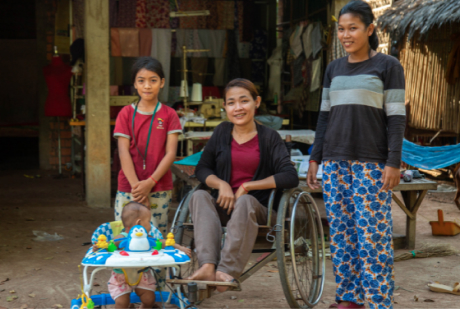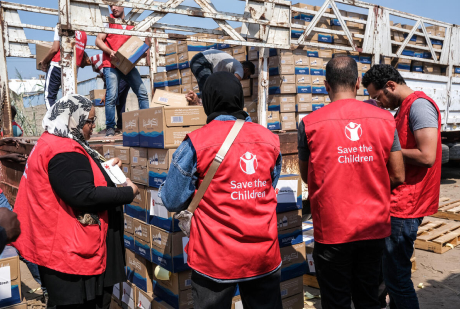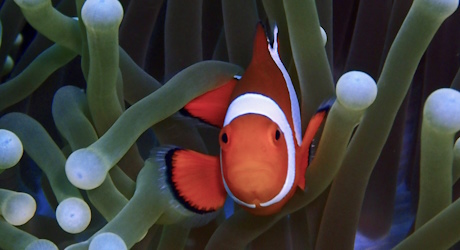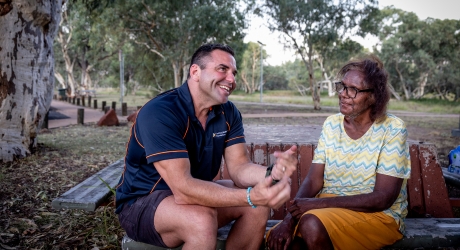Footprints Project
Since 2005, travelers like you have helped us change the world through micro-donations.
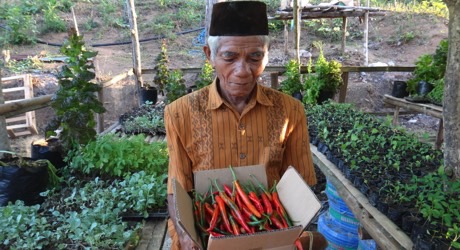
-
A total of
11171
Travelers
-
donated
$35022.36
(100% funded) -
to help improve
Food Security
-
impacting
30498
people -
in
Indonesia
Project background
To the west of Sumatra, and north of the Mentawai, lies the remote island of Nias, a wave-rich island which is a top tier destinations for surf tourists, but at the bottom tier for service provisions and poverty. Because these hard to reach islands are far removed from the epicentres of Jakarta and Bali, they continue to receive insufficient support and basic services.
As a result, all indicators of human wellbeing fall well below the national averages. Nearly 60% of the population live in poverty or dangerously close to it. Poverty is one of the biggest contributors to food insecurity and malnutrition, and a key area of intervention for SurfAid.
SurfAid specialises in working in remote areas in Indonesia. There is a saying that the aid stops where the road stops, but that’s where SurfAid’s work begins.

Project overview
This project has supported economic development to further improve food security, working across 37 villages (30,498 people) in Nias’ sub-districts of Hiliduho and Gido, to secure year around access to sufficient food for a healthy life, improving mother and child long-term health. It complements SurfAid’s ongoing efforts to combat the ubiquitous food insecurity and malnutrition in villages where nearly one in four children are underweight and plain rice is the current dietary staple.
Food security is a multi-dimensional concept. Agricultural production, nutrition, income, food quality, clean water, sanitation, feeding and caring practices all influence food security. In this project SurfAid focused on the income component.
Most people on Nias are farmers who have traditionally grown rubber, however the prices for rubber have collapsed, leaving the people destitute and desperate for alternative income generation activities.
Project activities and results
46 community health/farmer groups have been supported to develop catfish, chicken and corn farms.
We based the training and coaching on the farmer field school approach; a group-based learning process where farmers share their observations and analyse together with a SurfAid facilitator/ agricultural specialist on how to optimise their results.
659 farmers and health volunteers have received coaching and training to start small businesses.
The training series consisted of sessions on planning and commodity identification, business plan development, value chain, savings/financial management, followed by technical training per selected commodity. At the end of the training series, the groups can apply for micro grants. We have focused on women who have been previously identified as leaders in their communities to start small businesses.

This means SurfAid mentors and coaches those with great human potential and simultaneously improve gender equity. Further, the women’s influence in contributing to improved food security is significant given their primary responsibilities for food production, purchasing, preparation and in feeding and care practices.
30 community health groups are now actively managing small businesses.
This includes chicken farms, cat fish farms, corn cultivation and banana and sweet potato chips production. The chicken farms are the most popular since it has the fastest return: from hatchling chicks to chickens ready for selling is only one month. For catfish farms and vegetables/corn it will take 3-4 months (excluding preparation) before harvesting is possible.
“I am really helped by having our small business. In this cycle, we can now also get a little wage from the business and I used it to pay my child’s school fee.”
– Ibu Ina Neni Telaumbanua Head of Posyandu small business group “EMBUN”, Mazingo Village, Hiliduho sub-district.

Partners and community involvement
SurfAid works with communities to develop their own solutions that are culturally and geographically appropriate to the unique environment of remote islands. Using a ‘hand up, not a hand out’ approach, SurfAid develops leaders from within villages and builds their capacity to support the development of the community.
In conjunction with the villages themselves, SurfAid also works in partnership with the Indonesian government to achieve national priorities and increase the sustainability of achieved outcomes.
Part of a larger strategy
SurfAid is implementing an overarching Mother and Child Health program in Nias that focuses not only on improving nutrition, but access to clean water and health education services too.
This project is one of many smaller projects that contributes to the desired outcome of improved nutrition. Small food businesses provide two of the three requisite components to achieve this outcome: food availability and access to food (additional household income). Other projects within the program address health and sanitation factors that impact on food utilisation (the third pre-condition for improving nutrition).
Traveling soon? When you buy travel insurance with us, you can make a contribution towards a cause you care about.
Get a quote